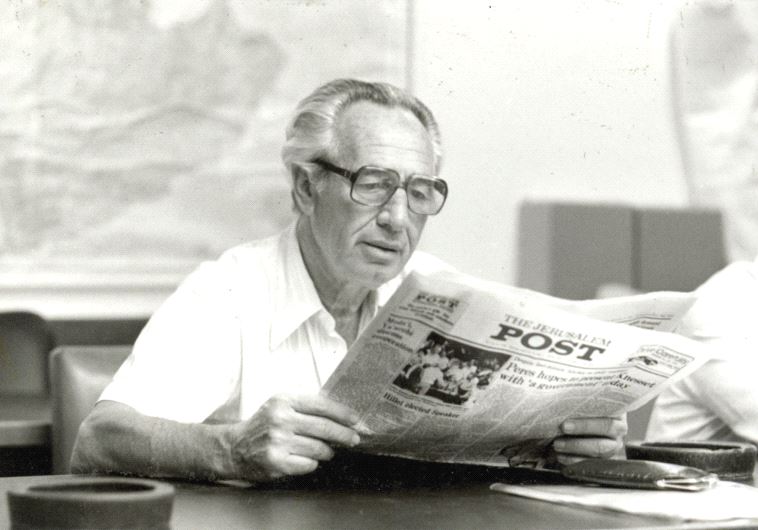Grapevine: Shimon Peres Day in the Big Apple
Chemi Peres said that it was extremely moving to know that such an honor was being bestowed on his late father.
 SHIMON PERES reads ‘The Jerusalem Post’ in January 1987.(photo credit: GUSTAVO FEINBLATT/JERUSALEM POST ARCHIVES)
SHIMON PERES reads ‘The Jerusalem Post’ in January 1987.(photo credit: GUSTAVO FEINBLATT/JERUSALEM POST ARCHIVES)